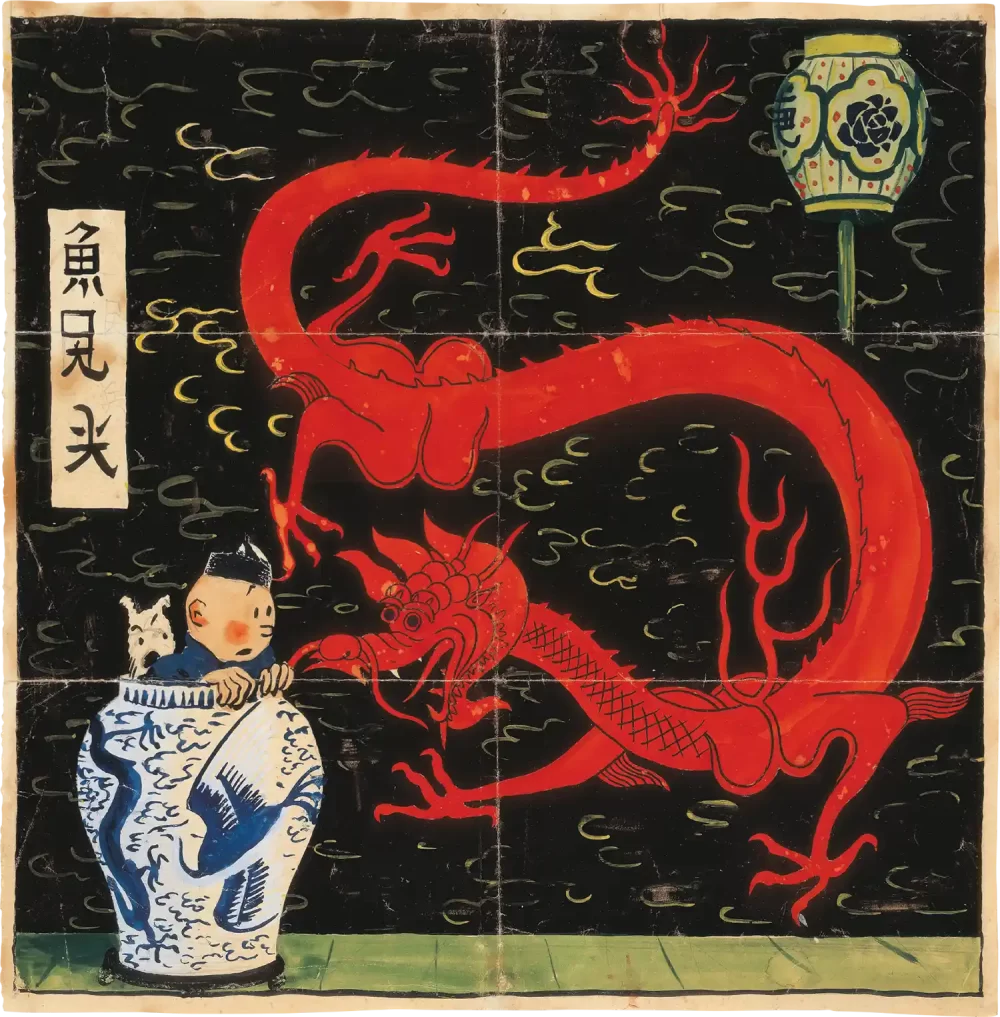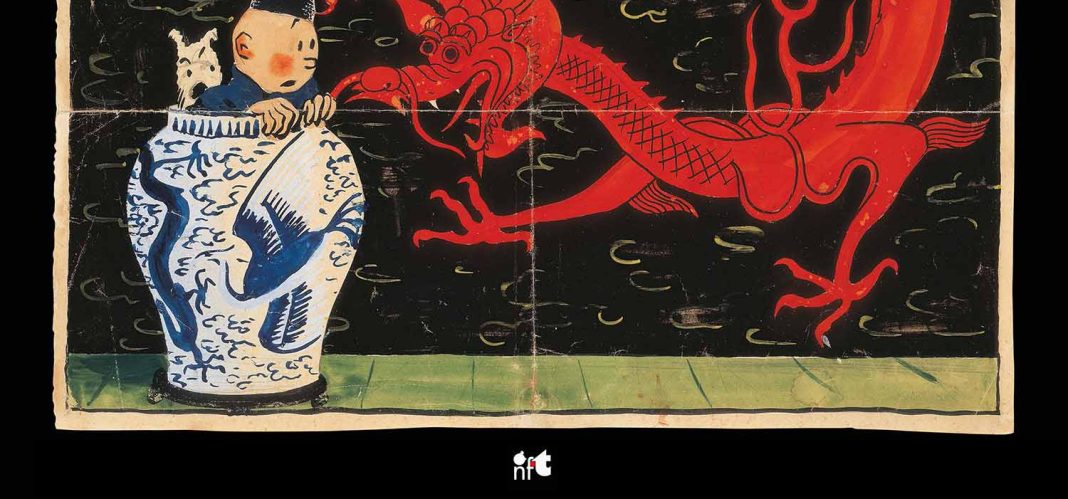TintinImaginatio, the zealous copyright holders to the work of Hergé and the Tintin brand, have announced a collection of NFTs entitled ‘Missing Works of Art’ as they announce the end date of the first Tintin NFT sale.

The first Tintin NFT relates to a digital reproduction of the original cover to fifth book The Blue Lotus that Hergé delivered to publisher Casterman in 1936. TintinImaginatio recently announced that the limited number of 1,777 Blue Lotus NFTs will cease direct sale through Digital Tintin on August 31, 2023. Accompanying that announcement, TintinImaginatio declared a broader plan of what NFTs are to come.
According to TintinImaginatio:
“We can now reveal that this first Tintin NFT, The Blue Lotus, is part of a new collection called ‘Missing Works of Art’. This unique collection will highlight rare and precious works by Hergé that, until now, do not belong to the Hergé Museum, have never been published or have been considered lost. Thanks to our research, blockchain technology and the creation of NFTs, we have succeeded in finding these hidden treasures and presenting them in a digital form.”
Summary: a new way to capitalise on items that TintinImaginatio doesn’t actually possess.
The first Tintin NFT was announced in December 2022, produced in partnership with NFT and blockchain specialists artèQ, with it being revealed to be The Blue Lotus. It came in two NFT types – “collectible” and “utility”. The latter of which came with the purchase of a 777-copy limited print poster of the image (which actually physically exists), sold for €750 ($820) a pop. The “collectible” (non physical) NFT is being sold for 0.25 Ethereum (about $475). The original item the NFT is based on was the first illustrated cover for The Blue Lotus that Hergé produced in 1936 for publisher Casterman. It was reportedly rejected because it was deemed too expensive to reproduce in colour at the time. It was sold at auction in 2021 for €2.6 million ($2.85 million).
TintinImaginatio (formerly known as Moulinsart) is the company “set up to protect and promote” the work of Hergé – by claiming a worldwide monopoly on the copyright to the work of Hergé, particularly concerning the Tintin brand and merchandise. It was renamed in 2022 from Moulinsart to TintinImaginato to reflect “the new perspectives of opening up to the virtual world, the imaginary world, and the imagination” (so the pivot to virtual reality, the metaverse, and – of course – NFTs isn’t a dramatic leap either).









A worthless non-product issued well past the point when anyone would be dumb enough to be suckered in. Whoever is in charge of this initiative should be unceremoniously fired.
« En avant, l’heure a sonné de vous transformer en César… »
Comments are closed.